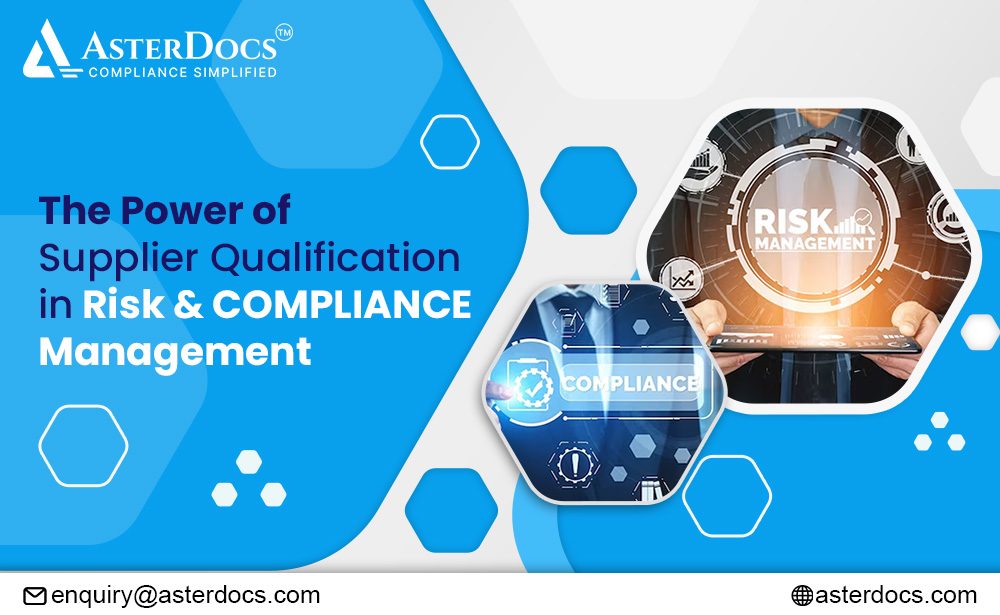In the nutraceutical industry’s dynamic landscape, ensuring product quality, safety, and compliance is paramount. One crucial aspect that plays a pivotal role in achieving these goals is the thorough qualification of suppliers. This blog post will delve into the significance of supplier qualification processes for nutraceutical suppliers, highlighting their critical role in Risk and Compliance Management.
Understanding the Nutraceutical Landscape
Nutraceuticals, encompassing a broad spectrum of products ranging from dietary supplements to functional foods, are subject to rigorous regulatory requirements. The nature of these products demands a meticulous approach to quality control and compliance throughout the supply chain. Suppliers, as integral contributors to this chain, must undergo a comprehensive qualification process to ensure they meet the stringent standards of regulatory authorities.
Key Components of Supplier Qualification
- Quality Assurance and Control: Thoroughly assessing a supplier’s quality assurance and control measures is fundamental. This includes evaluating their adherence to Good Manufacturing Practices (GMP) and any relevant certifications.
- Traceability and Transparency: Suppliers should commit to traceability and transparency in their operations. This involves providing detailed raw materials sourcing, production, and distribution records.
- Compliance with Regulatory Standards: Compliance with regulatory standards is non-negotiable. Suppliers must align with the nutraceutical industry’s specific regulations, ensuring that their practices meet or exceed the stipulated requirements.
- Documentation and Record-Keeping: Effective supplier qualification involves meticulous documentation and record-keeping. This includes maintaining accurate records of processes, testing, and certifications and providing a transparent view of their operations.
- Risk Management Protocols: Nutraceutical suppliers should have robust risk management protocols. This involves identifying potential risks in the supply chain and implementing measures to mitigate and manage these risks effectively.
Minimizing Risks Through Supplier Qualification
- Ensuring Ingredient Integrity: Thorough qualification processes help guarantee the integrity of ingredients sourced by nutraceutical suppliers. This is crucial for maintaining the quality and efficacy of the final products.
- Mitigating Contamination Risks: By assessing suppliers’ adherence to quality control measures, nutraceutical companies can significantly reduce the risk of contamination, ensuring the end-user’s safety.
- Meeting Regulatory Requirements: Qualifying suppliers according to regulatory standards ensures that nutraceutical companies meet legal and compliance obligations, avoiding potential legal ramifications.
Elevating Nutraceutical Quality Through Supplier Qualification
In conclusion, the significance of supplier qualification in the nutraceutical industry cannot be overstated. It is a robust defense against potential risks, ensuring that products meet the highest quality and compliance standards. Nutraceutical companies that prioritize thorough supplier qualification contribute to the safety and efficacy of their products and the overall Risk and Compliance Management of the industry. As regulatory scrutiny intensifies, supplier qualification remains critical in pursuing excellence in the nutraceutical sector.














